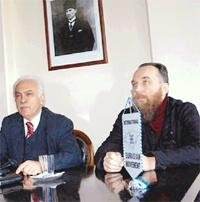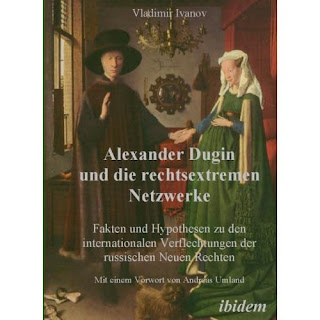Sometimes I think I need a
separate blog just to report highlights of the activities (or alleged activities) of
Alexander Dugin...

Now it is
plots and
Turkey. For anyone who hasn't noticed, 86 prominent Turks were charged in July 2008 with plotting to foment unrest with the ultimate aim of toppling the (mildly Islamist) AKP government of Turkey, as part of an ultra-nationalist network called
Ergenekon. Opinion seems divided--some see Ergenekon as an attempt by a secularist group or even a "deep state" to finish off the AKP, while others see the charges as an attempt by the AKP to finish off some leading secularists and frighten off some others.
The latest twist in the story is the allegation that key Ergenekon members were
closely associated with Russia, and that
the link was Alexander Dugin. Those who see the charges as being mounted by the AKP against patriotic secularists naturally see these allegations as a further and baseless attempt to discredit those charged. Those who see contemporary Russia as having returned to the most aggressive practices of the old Soviet Union naturally see these allegations as yet another element in a worrying pattern.
Dugin has certainly met some of the Ergenekon figures, and there may even be some
overlap of ideas. Whether there is any more truth to the allegations than this
may become clear with time, since
Turkish prosecutors are reported to be preparing to introduce
evidence of Dugin's role in
court at some stage.
 For those who prefer to read in French: Against the Modern World is now available in translation as Contre le monde moderne : Le traditionalisme et l'histoire intellectuelle secrète du XXe siècle, from Dervy.
For those who prefer to read in French: Against the Modern World is now available in translation as Contre le monde moderne : Le traditionalisme et l'histoire intellectuelle secrète du XXe siècle, from Dervy.


